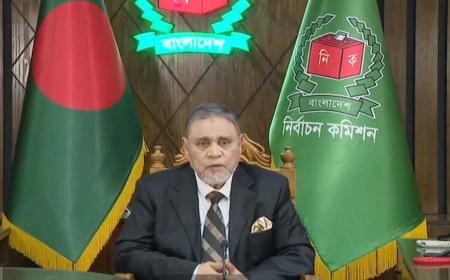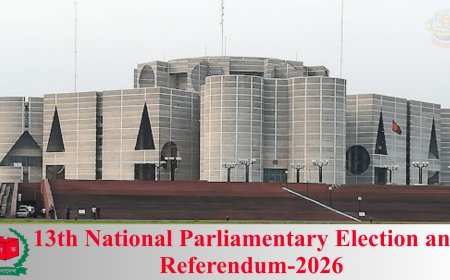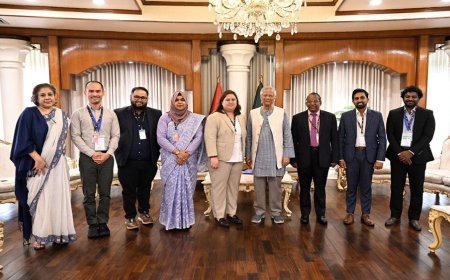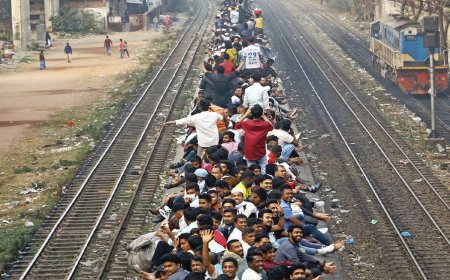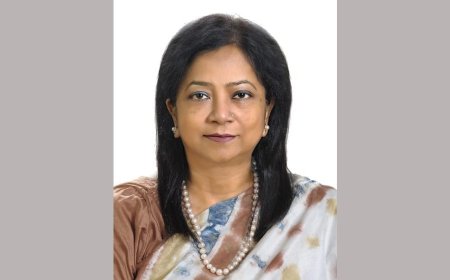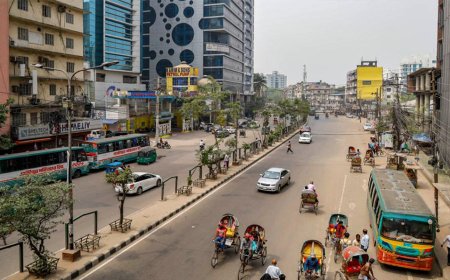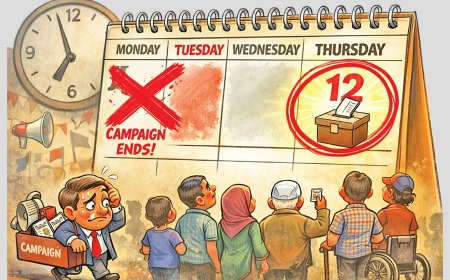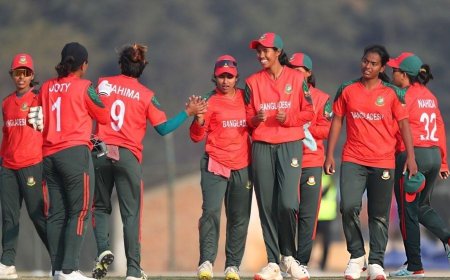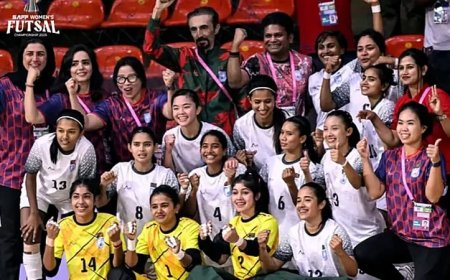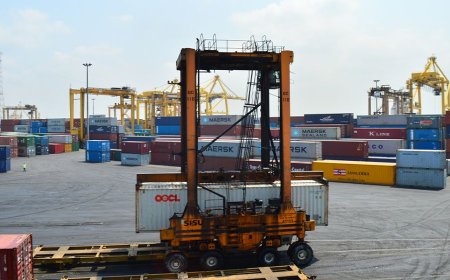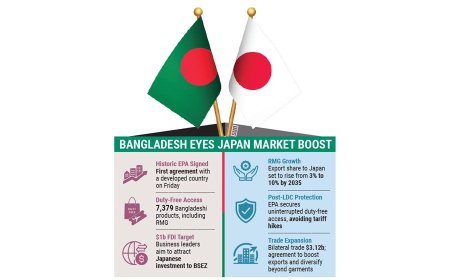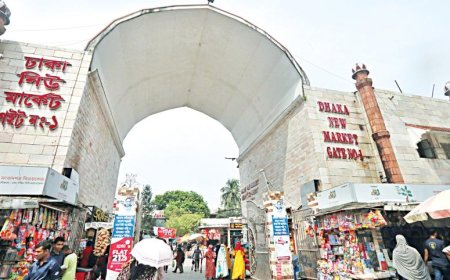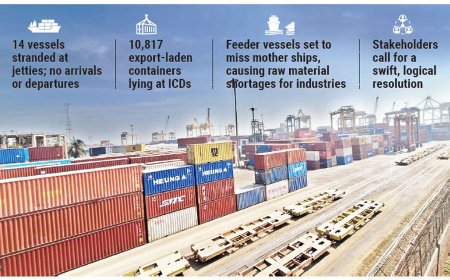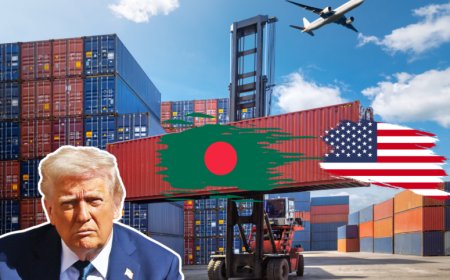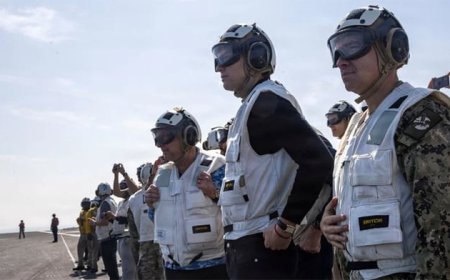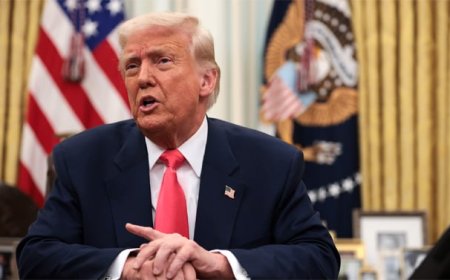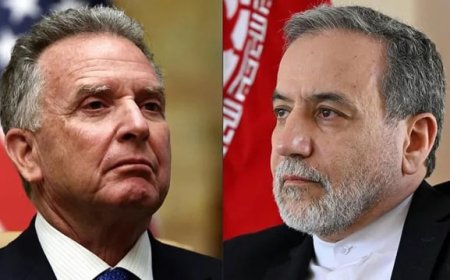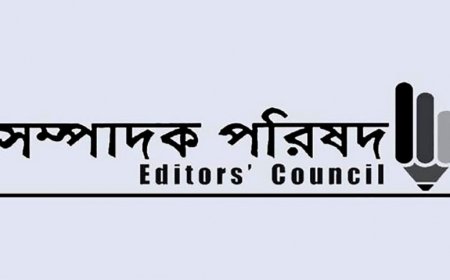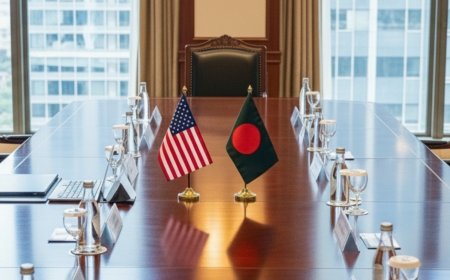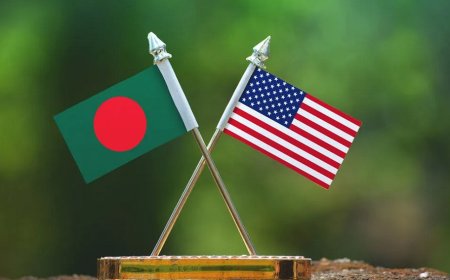Dr. Salehuddin: Government aims to make budget people-centric and business-friendly
Dr. Salehuddin: Government aims to make budget people-centric and business-friendly
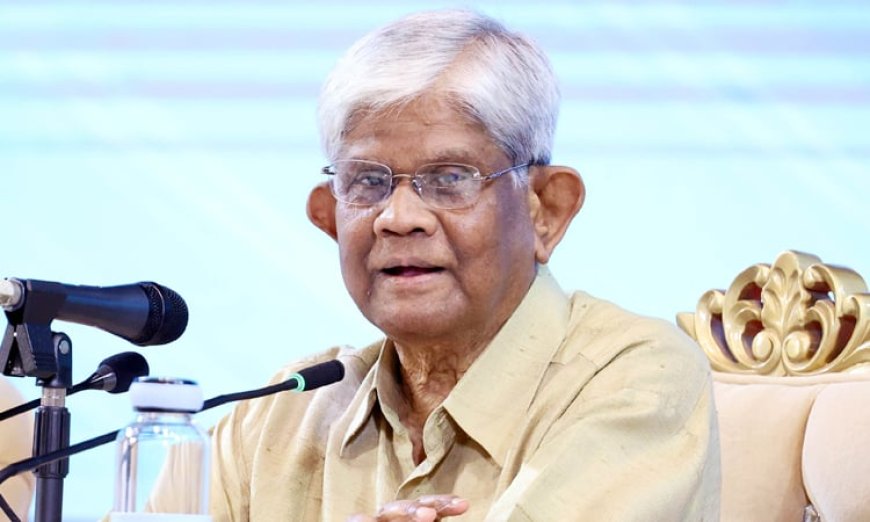
Dr Salehuddin: Government Strives for People-Centric, Business-Friendly Budget Amid Challenges
Finance Adviser Dr Salehuddin Ahmed stated today that the interim government has made a concerted effort to present a budget that is both people-oriented and supportive of business, with the primary objective of ensuring it is practical, realistic, and implementable.
“Despite facing numerous challenges, we want to move forward with everyone’s cooperation. Our goal is to improve people’s living standards and advance the country’s progress so that Bangladesh can serve as a global example,” he said during a post-budget press conference held at Osmani Memorial Auditorium in Dhaka.
He was joined by several advisers and senior officials, including Planning Adviser Dr Wahiduddin Mahmud, Home and Agriculture Adviser Lt Gen. Jahangir Alam Chowdhury, Power and Energy Adviser Muhammad Fouzul Kabir Khan, Commerce Adviser Sk. Bashir Uddin, Cabinet Secretary Sheikh Abdur Rashid, Bangladesh Bank Governor Dr Ahsan H Mansur, Finance Secretary Md Khairuzzaman Mozumder, and NBR Chairman Md Abdur Rahman Khan.
On Monday, Dr Salehuddin unveiled a Tk 7,90,000 crore national budget for FY2025–26 through a pre-recorded televised address, as there is currently no functioning parliament.
Noting that the proposed budget is slightly smaller than the previous year’s—the first such occurrence in Bangladesh’s history—he pointed to inflation, the energy crisis, and vulnerabilities in the banking and revenue sectors as key reasons.
“You’ve heard the narrative of growth over the years, but the benefits haven’t reached everyone equally,” he remarked. “We need growth, but more importantly, we must focus on raising purchasing power, improving law and order, and creating a favorable environment for trade and commerce.”
He acknowledged that the path forward would not be easy. “We’ve mobilized both domestic and external resources, restructured the tax system, and are negotiating for further international support while working to maintain debt sustainability.”
Describing the FY26 budget as “not business-as-usual,” Dr Salehuddin highlighted a blend of policy continuity and bold measures. “This isn’t a revolutionary budget, but we’ve taken courageous steps—like tax concessions, efforts to restore fiscal discipline, and continuation of key policies,” he said, adding that public feedback would be considered before the budget is finalized later this month.
He urged citizens and the media to engage constructively. “We need a collaborative approach and constructive criticism to make this budget work for the country’s future,” he said.
Reflecting on Bangladesh’s progress, he noted, “Historically, we’ve performed well. Although progress slowed before we took office, we’re trying to push forward. We want to make livelihoods more transparent and prioritize social safety nets.”
Responding to a question on the budget provision for whitening undisclosed income, Dr Salehuddin admitted that recovering stolen assets is a complex process. “Those who launder money are clever and use layers to hide it. But we’re tracking them—though it takes time. Nigeria, for instance, took 20 years to recover such funds.”
“If we had been able to recover laundered money, improve tax collection, and reduce corruption, we wouldn't need so much external budget support, including from the IMF,” he said.
He emphasized the country’s untapped potential and called on everyone to harness it in step with global trends. “We’re moving from rural roads to a highway—and this road will only get wider,” he said.
Dr Salehuddin also mentioned ongoing reforms across sectors. “This government will pursue as many reforms as possible and leave a foundation for the next administration.”
He concluded by noting that limited resources amid high demand made budget planning especially difficult. “Our biggest challenge was mobilizing domestic and foreign resources amid a difficult global climate. On top of that, we had to restore economic stability and law and order after the destruction left by the previous regime,” he said. “This budget reflects those realities.”
What's Your Reaction?







